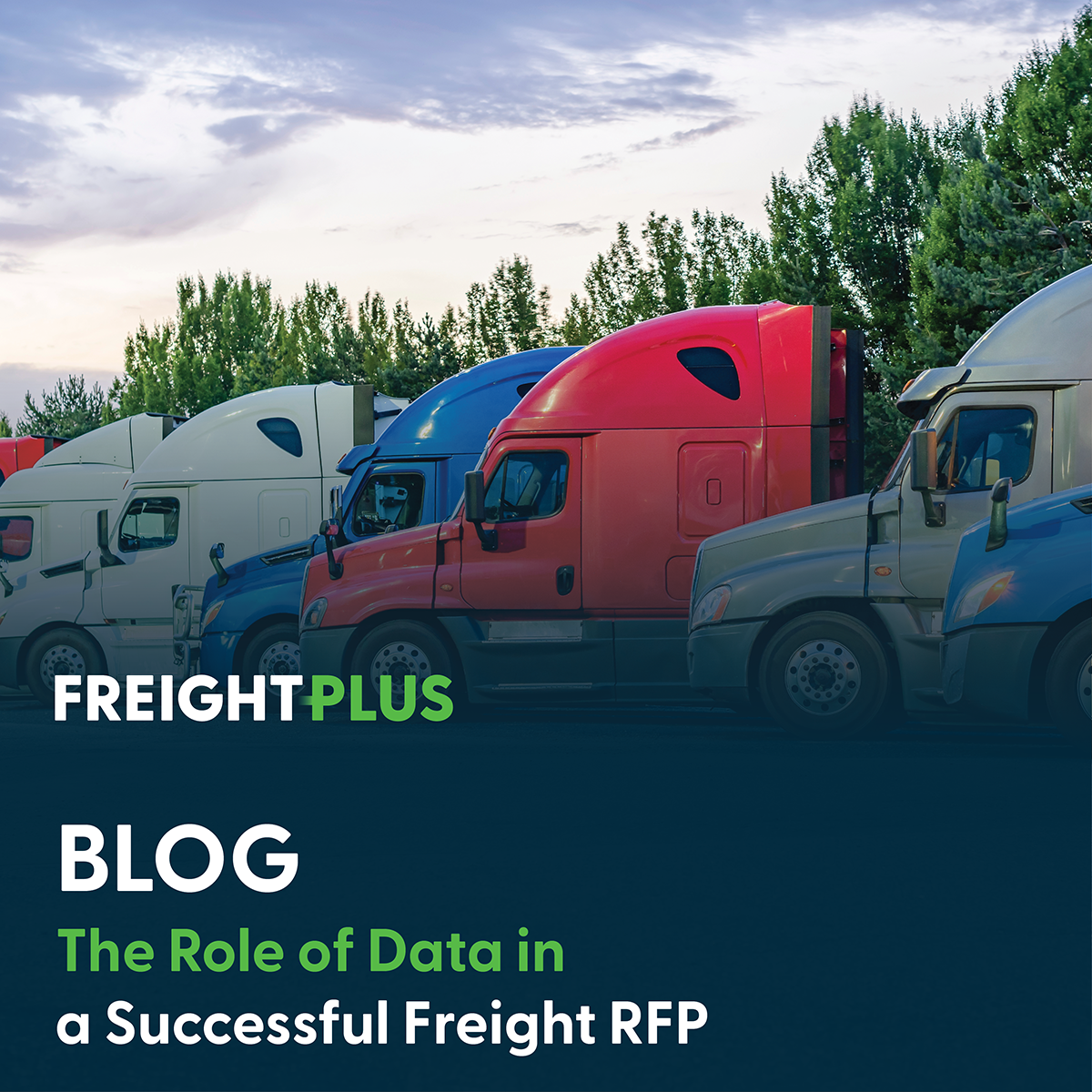When it comes to managing freight, creating a successful Request for Proposal (RFP) can be the difference between operational efficiency and logistical headaches. At the heart of any solid RFP lies data—specifically, accurate, detailed, and visible data. In an industry where precision and timing are everything, even small data errors can result in costly delays, missed opportunities, and strained relationships with carriers.
Here’s why focusing on data is critical for your freight RFP and how paying attention to details can set your logistics operations up for success.
- Accurate Data Drives Better Carrier Bids
The data you provide in an RFP acts as the foundation on which carriers base their bids. By offering detailed, accurate information—like shipment volumes, lane patterns, frequency, and service level expectations—you’re giving potential carriers the insight they need to offer realistic pricing and service proposals. When carriers must guess due to incomplete or inaccurate data, they may inflate prices to cover uncertainties or avoid bidding altogether.
FreightPlus Tip: Avoid overgeneralized data. Carriers need specifics about seasonal fluctuations, special requirements (such as temperature-controlled shipments), and historical trends to craft a proposal that truly fits your needs.
- Data Visibility Enhances Decision-Making
RFPs with clear data visibility allow both you and your potential carriers to see the full scope of the partnership you’re proposing. This transparency empowers carriers to make more informed decisions, such as optimizing fleet deployment, planning capacity, or adjusting operations for peak seasons.
For shippers, having a clear view of your own data enables better evaluation of proposals. You can compare bids with confidence, understanding the underlying assumptions behind each offer. Additionally, visibility into past performance data helps in evaluating which carriers are likely to meet your expectations based on historical reliability, cost-effectiveness, and service quality.
FreightPlus Tip: Consider using freight management platforms that offer data visualization and analytics, enabling you to provide deeper insights into your shipping needs during the RFP process.
- Details Reduce Risk
The more detailed your RFP, the more likely you are to avoid misunderstandings down the line. Data gaps can lead to carriers misinterpreting your needs or underestimating the complexity of your freight operations. This not only impacts pricing but can lead to service failures, unexpected surcharges, or even breach of contract if a carrier is unable to meet your expectations due to unclear requirements.
Including details such as pallet dimensions, special handling needs, required delivery windows, and accessorial charges provides a clear picture of your operational demands. This, in turn, reduces the risk of surprises and ensures you’re partnering with carriers who can deliver on their promises.
FreightPlus Tip: Work closely with your internal teams—especially customer service and warehouse managers—to ensure that every aspect of your logistics process is documented in the RFP.
- Historical Data Improves Negotiation Leverage
Carriers respond to RFPs with bids based on the data you provide. The more comprehensive and accurate your data is, the better your leverage during negotiations. Data that shows how you’ve performed with previous carriers—such as on-time rates, claims history, and average lead times—provides a basis for discussing better terms. Carriers who see the potential for a long-term, low-risk partnership are more likely to offer competitive pricing and premium service levels.
FreightPlus Tip: Compile performance metrics from previous carriers and highlight them during negotiations. This helps set clear expectations from the start and ensures you’re entering a mutually beneficial partnership.
- Data Quality Affects Long-Term Strategy
A well-executed freight RFP isn’t just a one-time event—it’s a step toward building long-term partnerships that will sustain your business. The quality of data in the RFP sets the stage for ongoing collaboration. By regularly updating and reviewing your freight data, you can fine-tune RFPs for future bids, align with carriers who fit your evolving needs, and drive continuous improvement in your logistics strategy.
FreightPlus Tip: As your business grows, so will your logistics demands. Keep your data dynamic, adjusting RFPs annually or semi-annually to reflect changes in shipment volume, lane adjustments, and service needs.
The Power of Data-Driven RFPs
Data is no longer just a nice-to-have in the freight RFP process—it’s a must-have. With the right details, data accuracy, and visibility, your RFP becomes a powerful tool that attracts the right carriers, reduces risk, and lays the foundation for a smooth, cost-efficient logistics operation. Remember, the key to successful freight management lies not just in getting carriers to bid, but in using data to build long-term, reliable partnerships. In logistics, as in any operation, the details always matter.
The Benefits of Partnering with a Logistics Provider During RFP Season
Utilizing a logistics partner during RFP season can streamline the entire process, providing invaluable expertise and resources that can give you a competitive edge. Logistics partners like FreightPlus bring deep industry knowledge, carrier relationships, and advanced technology to the table, which allows them to help you craft a more detailed and data-driven RFP. With a logistics partner handling complex data analysis, such as historical performance, seasonal volume fluctuations, and cost benchmarks, you can ensure that your RFP is comprehensive and tailored to attract the best possible carrier bids. Furthermore, logistics providers can negotiate on your behalf, leveraging their market insight and network to secure favorable pricing and service commitments. By partnering with experts, you’ll not only save time but also mitigate risks, ensuring that you form long-term partnerships with carriers who align with your business goals and logistics strategy.





